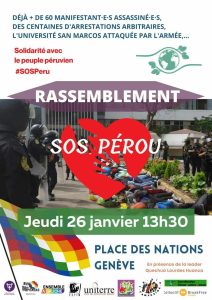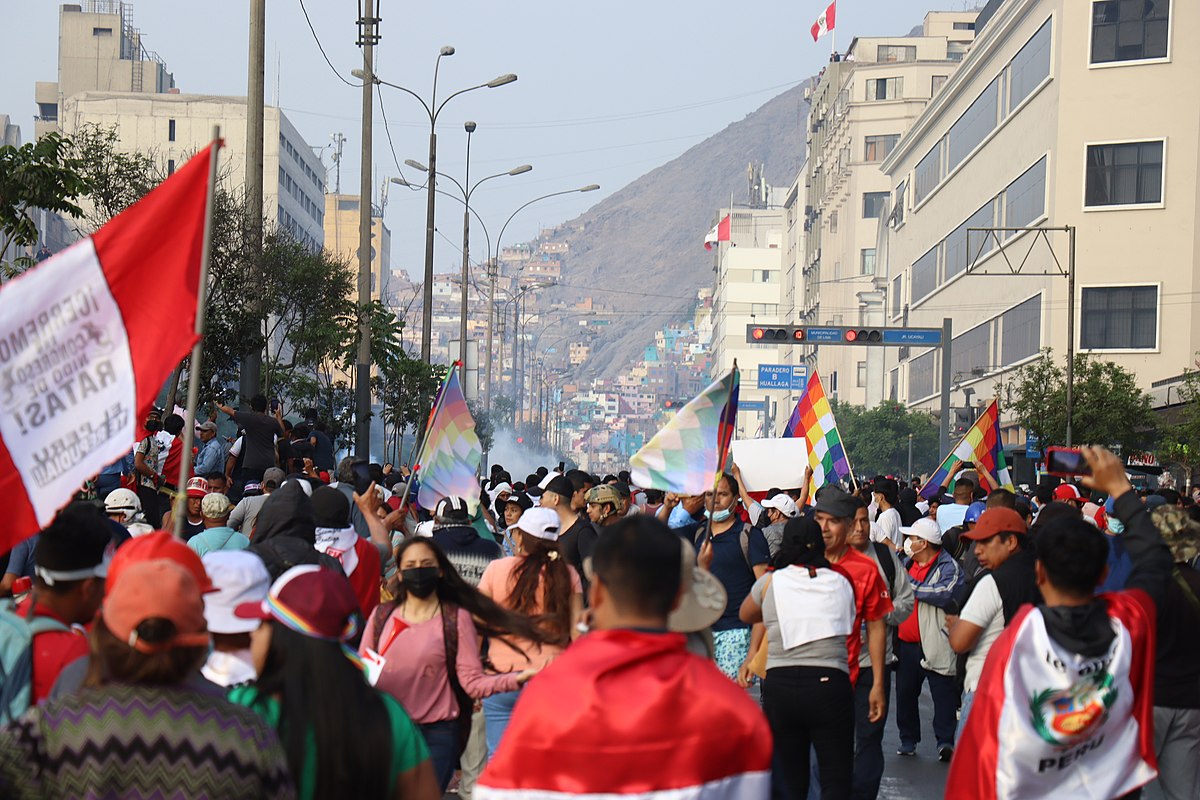Peru’s Minister for Justice and Human Rights and the UN Ambassador in Geneva bookended Peru’s Universal Periodic Review (UPR) expressing concern about lives lost during recent protests but also defending taking action against what they called, ‘violent acts’.
A host of States, however, voiced concern about the use of excessive force and need to protect the right to protest, including Argentina, Brazil, Chile and Paraguay. While States held the UPR inside the Palais des Nations in Geneva, outside civil society members congregated calling for justice for victims and dialogue over protestors’ demands to address historical injustices.

During the review, the situation for human rights defenders was a main theme of State recommendations. Ireland and Mexico acknowledged progress made with the recently established Intersectoral Mechanism for the protection of human rights defenders. Concern was voiced, however, about the operation of the mechanism and the implementation of the Protocol for the Protection of Human Rights Defenders (2019) and lack of resourcing. Peru’s ombudsman and a range of civil society groups, including Amnesty International, highlighted adequate personnel, funding and coordination in their submissions for the review.
Peru did not provide details of how the 2021 Sectorial Protocol for the Protection of Environmental Defenders fits within the wider protection framework. However, several States urged Peru to ratify the Escazú Agreement – the world’s first legally binding instrument relating to environmental defenders – after two attempts to move to ratification failed. Chile, Colombia, Germany, Mexico, Norway Panama and Spain made that call.
‘It has been encouraging to see calls for ratification and implementation of the Escazú Agreement during the Peru and Guatemala UPRs this week,’ said ISHR’s Eleanor Openshaw.
‘We must keep leveraging the international human rights system to support national and regional efforts related to the ratification and implementation of the Escazú agreement, where helpful’, she added.
Peru invited Special Procedures to request information and visits to the country at any time. The Minister of Justice and Human Rights invited Special Procedures to seek further information if required and set dates for visits. The representative noted that seven visits of Special Rapporteurs are planned over the next year. Peru received a visit from the prior High Commissioner in July 2022 and, in the context of the protests, an envoy of the High Commissioner visited in January 2023. The Inter-American Commission on Human Rights (IACHR) also carried out two recent visits, with a full report pending, and has issued a very recent call for Peru to curb excessive use of force.
The UPR outcomes, including a full list of recommendations, will be considered later in the year. It’s expected that the human rights situation in Peru will feature in the High Commissioner’s report to the Human Rights Council in March.
Download as PDF





